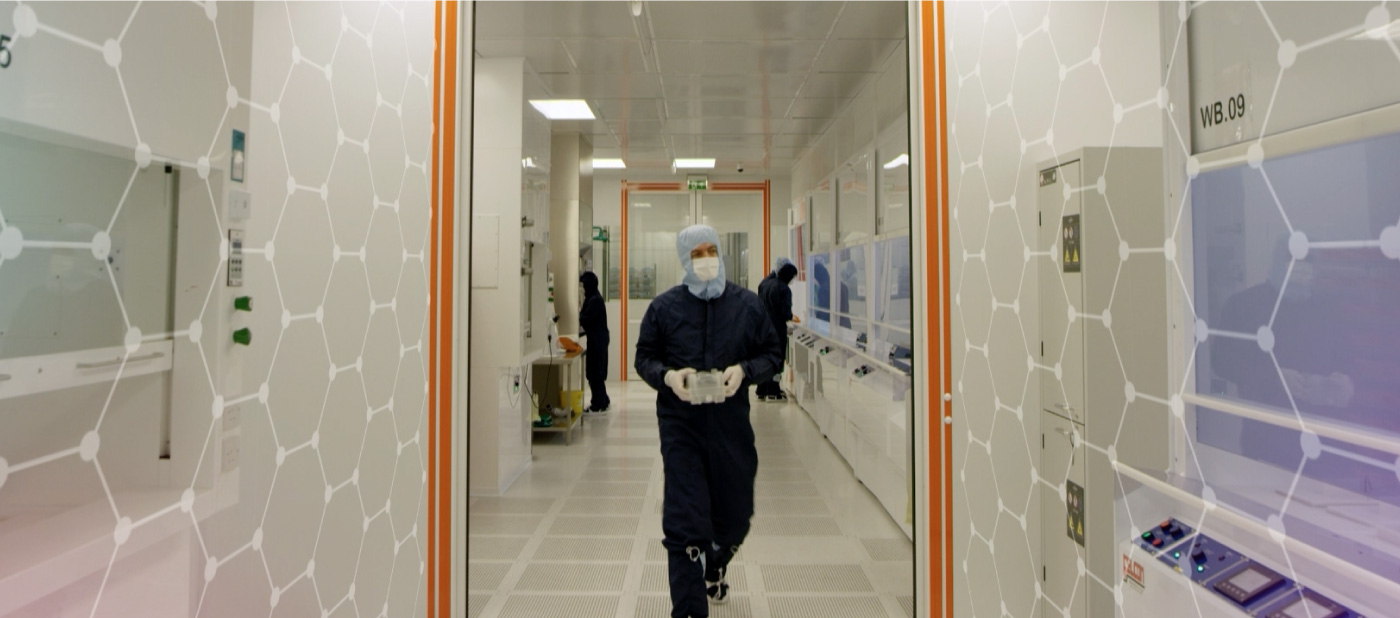The Henry Royce Institute (Royce) has welcomed Sir Paul Nurse’s Independent Review of the UK’s Research, Development and Innovation Organisational Landscape which sets out how the UK’s publicly funded Research, Development and Innovation (RDI) infrastructure can really support the UK economy, increasing both productivity and sustainable growth.
In his introduction to the report which was published this week, Sir Paul Nurse, who is CEO of the Francis Crick Institute, said: the objectives of the Review are to explore the existing ecosystem of research, development and innovation within the UK, to identify improvements to the organisational research landscape that are required to deliver the Government’s ambition to be a science superpower, driving economic growth and societal benefit.
The Nurse Report, for which Royce provided evidence, confirms the importance of the continued development of a world-leading, suitably resourced and highly capable UK RDI ecosystem. It has been commissioned as part of the 2021 UK Innovation Strategy, to describe the diversity of UK RDI organisations, to identify strengths and weaknesses, and to make recommendations for improvement of the RDI landscape, with a primary focus on researchers and RDI funded by the public purse
Professor David Knowles, Henry Royce Institute CEO said:
“This report adds further weight to the to the vital importance of the role of recent national Institutes such as Royce, Crick, Turing, Faraday and Rosalind Franklin, and of course many of the wider public sector research establishements, as innovation hubs, representing significant Government investment which should be fully mobilised to enable the technology required for the UK to stimulate economic growth and achieve societal goals.
“The call for stability in national RDI policy and a clear vision to support investment into UK, as well as clear pathways for the vast array of talent which underpins RDI, including technicians, programme managers and administrative staff, is wholeheartedly welcomed, as is the recognition of the importance of international collaboration and the role of institutes in supporting regional development.
“For Royce, Sir Paul’s recognition of the importance of the role of Government in conveying the benefits to business of RDI investment is particularly timely, as we embark upon the development of a National Innovation Strategy for Advanced Materials, the ambition of which is to stimulate innovation, applications and market opportunity in the UK and overseas aligned to global societal needs.”
A key recommendation in the report is that institutes need sustained financial support and in this respect, Royce and its Partners across the UK were pleased to be able to confirm Royce’s Phase ll Engineering and Physical Sciences Research Council (EPSRC) £95m funding settlement in November 2022. This will allow Royce to continue to support the translation of innovative advanced materials research into viable products and systems across key strategic sectors such as manufacturing, energy, and healthcare.
Royce is now actively engaged with the newly established Department for Science, Innovation and Technology (DSIT) to support delivering on its ambition of ensuring the UK is a “science superpower” and is competitive globally. The Nurse Review was published alongside the DSIT’s new Science and Technology Framework which sets out its approach to making the UK a science and technology superpower by 2030 https://www.gov.uk/government/publications/uk-science-and-technology-framework
-ENDS-
Report recommendation highlights
High level recommendations
- RDI is needed to secure increased productivity and sustainable growth, but this must be accompanied by stable policy to build investor confidence
- The RDI landscape needs to be more transparent and accessible, particularly to industry
- Financial stability for public research funding with more complete end-to-end funding
- Reduced bureaucracy required – focus on quality of research and high impact output
‘Institutes and Units’
End-to-end’ research support has four components: direct research costs; administrative services; technical facilities; and laboratory facilities. Funding needs to address all of these aspects
- The success of institutes and units depends on clarity of mission, effective leadership, good impartial governance, sustained funding, and appropriate location
- Institutes and units need sustained financial support, including un-hypothecated funding, to ensure ‘end-to-end’ research support
- Institutes need a well-defined mission and purpose
- Institutes and units must have high quality administrative as well as scientific leadership
Industry and Private Sector Support
- The private sector is the largest funder and performer of RDI in the UK, and growth of the private sector’s investment in RDI is important if UK business is to become more productive and drive sustainable economic growth.
- Government should take a more strategic long-term approach to facilitating private investment in key sectors and technologies where the UK has a competitive advantage
- Government should use its convening power to create a favourable environment for business to invest in RDI
- Government has a role in conveying the benefits of RDI investment to businesses, shareholders and academia, embracing practices from countries with high business RDI investment rates
- Mechanisms to deliver this should be explored and implemented
RDI and Society
- Government departments should be more active in ensuring that RDI is available to inform their policy development.
- examples of such policies are in health care, equitable regional economic growth across the country, and delivery of net zero
- RDI landscape should be permeable to knowledge, skills and expertise across the UK.
- Universities could further contribute to equitable regional economic growth by providing an enhanced gateway for their local industries to learn about RDI activities in Research Performing Organisations (RPOs) and research activities elsewhere in the UK, including in other universities
- Government and RPOs should partner with local communities to support RDI relevant to their needs, to bring about more equitable regional economic growth based on local expertise and demands
- Universities and other RPOs should support their local community and economy by enhancing their role as an information nexus and by helping local industries link to research capabilities
International
- Government should ensure that international collaboration is protected and encouraged, and should resolve problems damaging the UK RDI landscape’s international links
- UK should consider opportunities to host new intergovernmental multi-nationally funded institutes and international research infrastructures
Policy stability
- At every level of the UK’s RDI endeavour, from Government Ministers in Cabinet to the operations of individual RPOs and funding organisations, there needs to be a systematic coordinated approach to RDI strategy and policy setting
- DSIT should define the overall architecture and governance for cross-Government RDI policy, setting out accountabilities from Cabinet and below. This should include the National Science and Technology Council (NSTC), as well as other key RDI spending departments, UKRI and other funders, to ensure roles are complementary, and to improve alignment on policies
- Government should establish a research vision and strategy including long-term programmatic, infrastructure and technological initiatives, which is especially relevant at the applied end of the research spectrum. This will give RPOs, investors and global companies the confidence to invest, operate and interact with the UK RDI landscape
Talent
- Government should ensure that there is a well-trained RDI workforce available at all levels, and long-term educational planning to ensure a future pipeline of researchers and technicians.
- Career pathways for those roles that underpin effective research delivery, including technicians and project and programme managers, should be strengthened so the importance of these roles is better recognised
- Training and career structures for early career researchers, including PhD students, post-doctoral researchers and starting faculty, need to be reviewed and reformed
- Career path diversity and permeability between different RPOs should be encouraged



